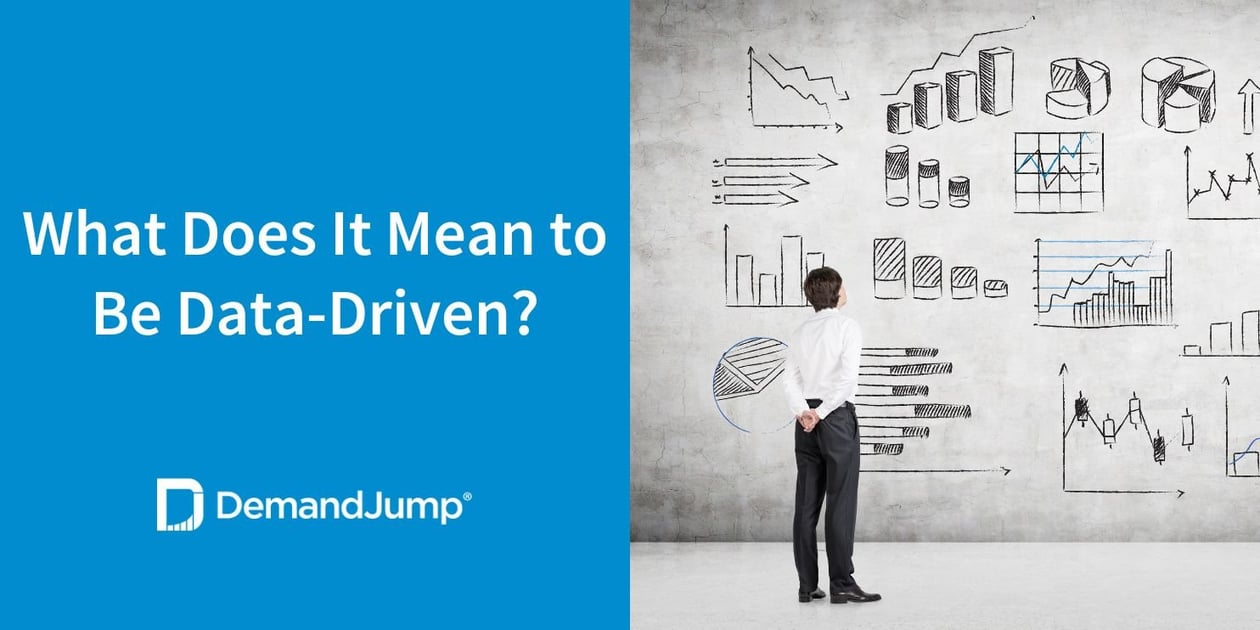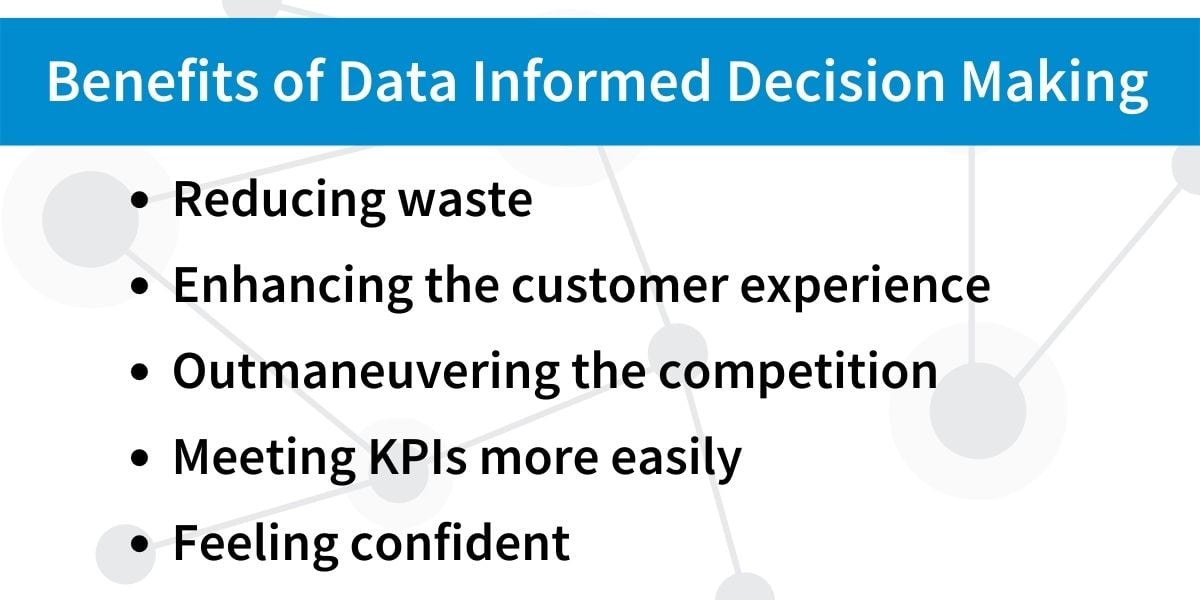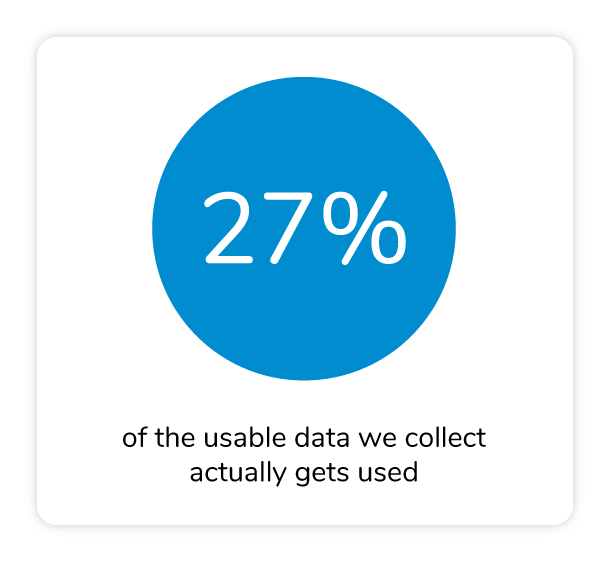What Does It Mean to Be Data-Driven?
March 19, 2020 •DJ Team

Being data-driven refers to the incorporation of data, or information that is stored and rooted in numbers and fact, into an individual or organization’s decision-making process.
Businesses love buzz words: Synergy”, “Customer-Centric”, “Growth Hacking”. But while becoming a buzz word leads to over-use and often reduced meaning over time, that doesn't change the fact that these terms reach this status because they represent essential concepts to which we all should aspire.
Enter: ”Data driven”, a trendy word that achieved this status for a reason. But what does it really mean to be “data driven”?
Data Driven Approach
A data-driven approach is one that involves the gathering and analysis of data to make informed decisions. But before you can do that, you have to have a system in place that answers some crucial questions related to data:
- What kinds of decisions do you need to make?
- How much data do you need to say this is enough to make a decision?
- What kind of data?
- Where is this data?
- How long do you need to collect it and how often?
- How will you make sense of the data you collect?
All of this goes into developing and integrating your data-driven approach. So the role of data in decision-making is to answer questions like:
- Where to invest your marketing money and time
- What messages will resonate
- How to increase conversions
- What types of content to create
Benefits of Being Data-driven
If only life had more certainties... Is that stock going to go up or down? Will this route or that route get you to work faster? We’re not always sure.
With the right marketing tools, you can know with a little more certainty what to do next. That's because these tools analyze incredible amounts of data and put it all together, so that you can see the whole picture about:
- Customer behavior
- Marketing performance
- The competitive landscape
The Benefits of Data Informed Decision Making
- Reducing waste
- Enhancing the customer experience
- Outmaneuvering the competition
- Meeting KPIs more easily
- Feeling confident
That last one is very important. When you're confident, you're willing to invest the time and money an initiative needs in order to succeed, you know the ROI is worth it. On the other hand, when you're not confident, you don't do what it takes. Failure becomes inevitable.

A data-driven business is a more confident business.
But businesses face many challenges when it comes to data.
As marketing gets increasingly complex and we reach customers in more places, we begin struggling with:
- Collecting all the data everywhere we need to collect it
- Make sense of that data
- Use that data
Only around 27% of the usable data we collect actually gets used. That's because no human can analyze the amount of data we're talking about in a lifetime.

We need advanced analytic tools to support our data-driven marketing ambitions. These tools gather and analyze endless amounts of data from across the many channels on which you have a presence (social media, your website, review sites, etc.). They then present it to you in a form you can use to make these kinds of decisions quickly and confidently.
All you need to do now is act on that marketing intelligence and measure the results.
Data-driven Decision Making
Data analytics and decision-making go hand in hand in business. Data based decision making involves having the tools and systems in place to make such decisions. Marketers view data analytics reports created by these advanced analytics tools multiple times a day.
Because this information is modeled and visually presented, they can quickly decipher the data and act upon it. So more decisions can be based on data. As consumer trends change, a marketing team needs to adapt quickly.
Data-driven Examples
Data informs every aspect of your data-driven campaign in a data-driven marketing department. Successful companies repeatedly show the power of this approach.
OkCupid - This dating site regularly publishes content to their blog. They use the consumer insights found in data analysis to inform them about what types of content resonate, get more shares, lead to subscriptions. They create higher-performing content thanks to data analytics.
Click here to see how closely your marketing efforts align with consumer behavior.
GrubHub - This food delivery service uses data to discover correlations between food ordered and political leanings. They used this data to showcase different types of foods based on an area's predominant political leaning. That way, on social media, they could target people on a more individual level.
Olay - This skincare company recently planned to advertise during the Super Bowl. They needed to be able to connect football with skincare, which is not an easy feat. They discovered through analytics that women who had an interest in both skincare and football also really liked horror movies. So they used this finding to create the #killerskin Super Bowl campaign.
Featured Articles
Categories
- Attribution Tracking (13)
- Channel Optimization (11)
- Consumer Insights (68)
- Content Marketing (251)
- Data Science (8)
- Digital Marketing (6)
- Digital Transformation (26)
- Enterprise (10)
- Lead Generation (14)
- Market Intelligence (8)
- Marketing Analytics (39)
- Marketing Attribution (57)
- Marketing Management (153)
- Marketing Operations (86)
- Organic Search (222)
- Paid Search (52)
- Pillar-Based Marketing (63)
- Programmatic Advertising (9)
- SaaS Content (14)
- SaaS Marketing (29)
- Search Marketing (111)
- SEO Keyword Research (28)
- SEO Pillar (18)
- SEO Strategy (46)
- SMB (5)
- Website Content (12)


